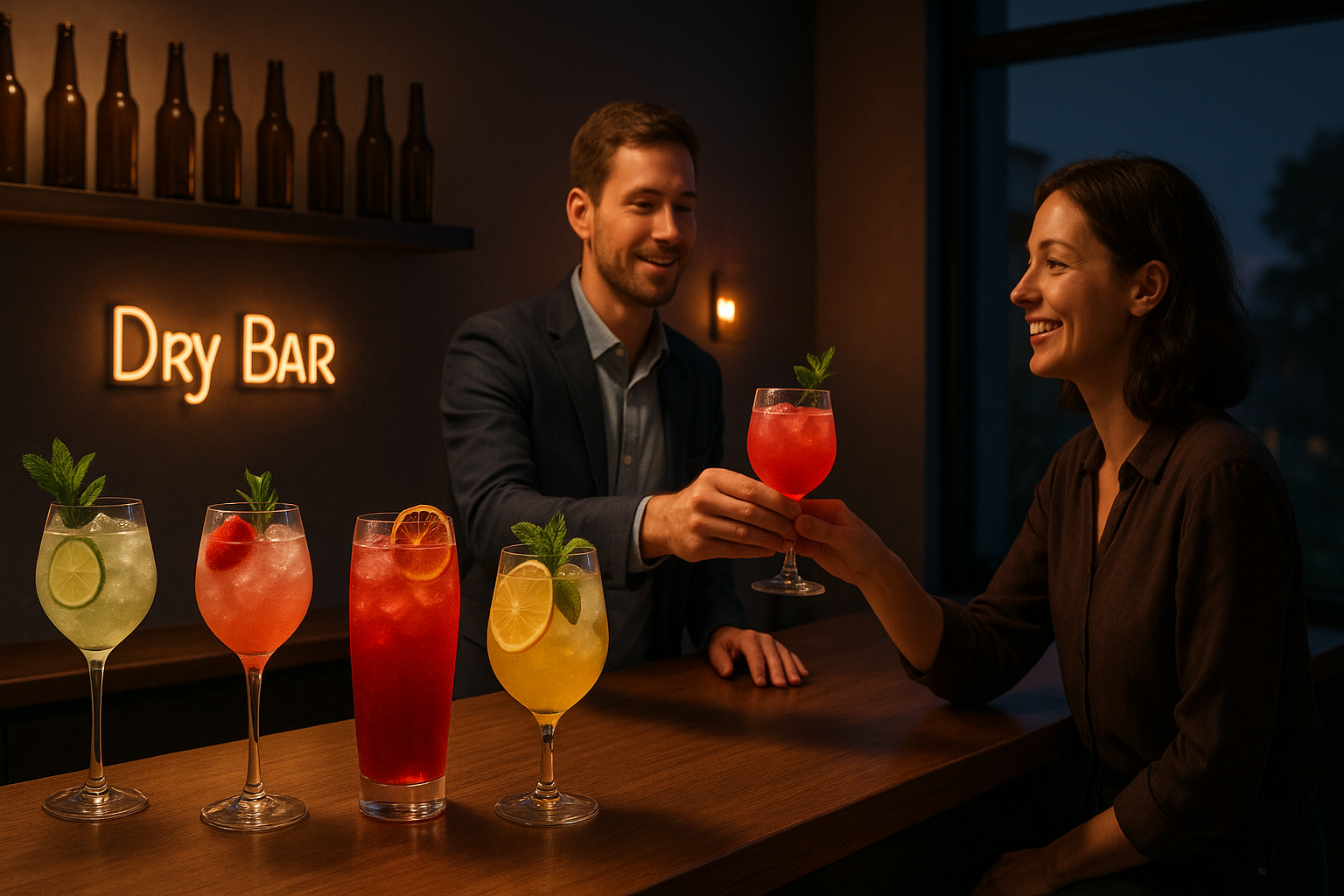Well, here's something I didn't see coming: Americans are apparently losing their taste for booze.
Alcohol consumption across the country has sunk to its lowest point in 85 years—a sobering reality (pun absolutely intended) that's sending major alcohol companies into what can only be described as a corporate panic attack.
The numbers don't lie. Molson Coors watched their sales volume plummet by 7%. Constellation Brands—you know, the folks behind Corona and Modelo—saw a 3.3% drop. These aren't small fluctuations. They're the kind of figures that make shareholders choke on their martinis.
Let that sink in for a moment. The last time Americans were this uninterested in alcohol, prohibition had just ended. FDR was in office. People were still using radio as their primary entertainment. It's been a minute.
I've been tracking consumer trends for years, and this one genuinely surprised me. Conventional wisdom suggests that during uncertain times—and lord knows we've had plenty—alcohol sales typically surge. But something different is happening now.
The Unexpected Sobriety Wave
What's driving this shift? It's not any single factor. It's more like a perfect storm of cultural changes.
Gen Z, for starters, seems almost suspiciously uninterested in getting hammered compared to previous generations. (Having witnessed millennials document their every regrettable moment on social media probably offered a cautionary tale.)
Then there's the health consciousness thing. What started as a niche California obsession has morphed into a national fixation. People are counting macros, tracking sleep, and—apparently—rethinking that nightly glass of wine.
The economics can't be ignored either. Have you bought alcohol lately? It's expensive as hell. In an era where everyone's watching their budget, dropping $15 on a cocktail feels increasingly absurd.
And let's not pretend the weed factor isn't relevant. In states where cannabis is legal, many consumers are simply switching teams. No hangover, fewer calories, and you don't text your ex at 2 a.m. It's a compelling alternative.
Corporate America's Sobriety Pivot
The fascinating part of this story—at least to me—is watching how these massive alcohol companies are responding to their existential crisis.
They're not going down without a fight, that's for sure.
Molson Coors and Constellation are throwing serious resources behind non-alcoholic options. It's a bit like watching Blockbuster suddenly try to become Netflix (though hopefully with better results). These companies built empires on getting people buzzed, and now they're scrambling to sell... what exactly? The absence of their core product?
"We're meeting consumers where they are," one industry executive told me last week. Translation: "We're terrified of becoming irrelevant."
This pivot isn't entirely unprecedented. Big Alcohol has dabbled in non-alcoholic options for decades, but those products were afterthoughts, not centerpieces of their strategy. The O'Doul's of the world were treated like the vegetarian option at a steakhouse—technically available but never the point.
Now? These alternatives are becoming central to growth plans.
The Surprisingly Lucrative Sobriety Economy
Here's the twist that nobody saw coming: non-alcoholic beverages can be insanely profitable.
Think about it. You remove the most expensive ingredient—the alcohol—and customers will still pay premium prices for the privilege of holding something that looks like a grown-up beverage. It's brilliant.
I visited a trendy "dry bar" in Brooklyn last month where people were happily paying $12 for elaborate concoctions of fruit juice, botanicals, and fizzy water. The profit margins must be astronomical.
This mirrors what happened with plant-based meat alternatives. Companies discovered they could charge meat prices—or higher!—for products made from soy and pea protein. The economics are compelling enough to attract serious investment.
But—and this is a big but—the barriers to entry for non-alcoholic beverages are far lower than for traditional alcohol. You don't need special licenses. Distribution is simpler. Manufacturing is less complex.
This means the established players are in a race against time. Can they leverage their existing brand power and distribution networks before nimble startups eat their lunch?
What This Says About Us
Look, America's relationship with alcohol has always been complicated. We've swung between embraces and rejections throughout our history.
What makes this moment different is the vibe. Previous temperance movements were moralistic crusades. This shift feels more pragmatic—less "Alcohol is evil" and more "Is this really worth the calories and the headache?"
Social media has changed the calculation too. When your worst moments can be immortalized online, staying in control becomes more appealing. The costs of losing your inhibitions have never been higher.
There's also something distinctly class-oriented about this trend. Sobriety—or at least moderation—has become something of a status symbol in certain circles. The ability to say no signals discipline and self-control, qualities our achievement-obsessed culture practically worships.
Where Do We Go From Here?
Will Americans stay on the wagon? History suggests these trends are cyclical. The roaring '20s followed prohibition. The hard-drinking '60s followed the more restrained '50s.
But structural factors suggest this might be more than a temporary shift. Demographics aren't on alcohol's side. Competition from alternative substances is real. And the wellness movement shows no signs of slowing down.
For investors, this presents an intriguing puzzle. The traditional alcohol giants have massive advantages in distribution and marketing, but they're playing defense. Meanwhile, innovative startups in the non-alcoholic space can grow with fewer regulatory hurdles.
Having covered consumer trends for over a decade, I've learned one thing for certain: betting against American consumers' desire to indulge is usually a losing proposition. But maybe—just maybe—we're redefining what indulgence means.
In the meantime, those alcohol executives might need a drink. The irony, of course, is that fewer Americans will be joining them.
